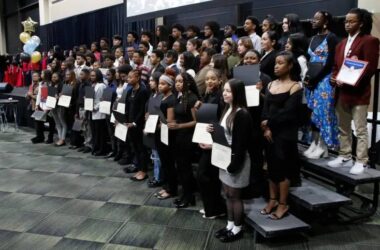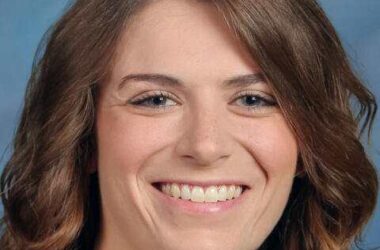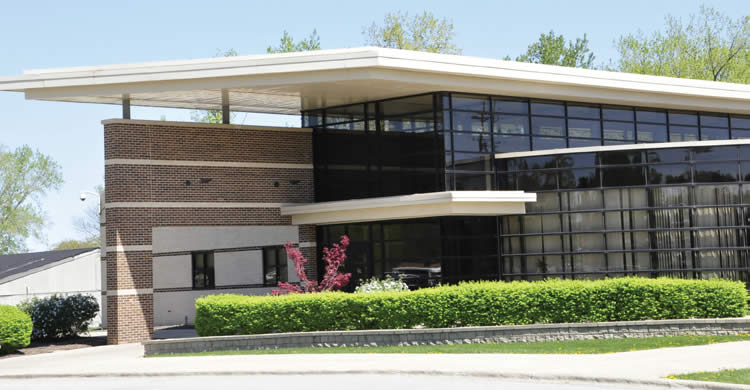CHICAGO–(ENEWSPF)–April 30, 2013.
Thank you, David, for those kind words; for your dedication to public service, not only in the Obama Administration but throughout your career; and for your commitment to training future generations of political leaders right here at your alma mater. It’s a pleasure to be with you at the University of Chicago tonight, and a privilege to stand with Dean Schill; members of the Levi family; leaders from throughout Chicago’s legal community; Attorney General Ashcroft and each of our distinguished panelists; and so many of the faculty members and students who have always made the University of Chicago such an exceptional place.
Thank you for welcoming me to your beautiful campus, and for providing a forum for tonight’s important discussion – as we celebrate the legacy of our nation’s 71st Attorney General, Edward Levi, and reaffirm our shared commitment to building on the work that defined his remarkable career.
It’s fitting that we come together this evening here in Hyde Park, at an institution – and a wonderful city – that Attorney General Levi was always proud to call home; on a campus that shaped him, and which he would in turn help to shape. As a young man, a student, and a faculty member – as Dean of the Law School, as the University’s first provost, and later as its President – Edward Levi was part of this community of learning for nearly his entire life. From kindergarten through his retirement – over the course of a career that would take him from the South Side to Washington and back again – he remained an essential member of the University of Chicago family.
His contributions were publicly recognized by another Attorney General – Robert F. Kennedy – exactly 49 years ago tomorrow, during a speech at your Law School in which Attorney General Kennedy praised Dean Edward Levi for his commitment to “public service, community concern, and intellectual inquiry.” By that time, Dean Levi had already spent several years at the Justice Department – serving in the Antitrust Division and the War Division, among other assignments, during the Second World War.
By the mid-1970s, he was President of this University – and had already built a national reputation as a brilliant scholar, a faithful steward of the law, and a passionate servant of all whom the law protects and empowers. He was widely known as a principled and independent leader who – as he once put it – tried to “radiate the values” of this institution at all times. And he was in many ways a perfect choice to become Attorney General of the United States after President Gerald Ford took office – in a moment of national crisis, at a time of almost unprecedented difficulty – and during a period when the faith of the American people in their government, and the reputation of the Justice Department, had been badly shaken by the Watergate scandal.
Into this atmosphere of cynicism, Attorney General Levi brought an air of calm. He raised standards, fought for transparency, and restored a sense of integrity. He rejected both politics and ideology, insisting – rightfully – that every decision be based solely on the facts and the law. He brought a fractured Justice Department back together, and inspired his colleagues to redouble their efforts – reminding them that “[n]o task has more to do with the future of our country than the work in which [they were] engaged.”
Even more importantly – as Jack Fuller’s new book demonstrates – Attorney General Levi worked hard to win back the trust of the American people, and to rebuild public confidence in the Department. He taught an entire generation of citizens and legal professionals – including me – that, when it comes to expanding opportunities and seeing that justice is done, even a single person can make a difference. And that all of us have both the power, and the responsibility, to try.
In 1975, when Attorney General Levi took office, I was still in law school at Columbia University in New York. Like all who are old enough to remember Watergate, I will never forget those tumultuous days – or the poisonous political climate that the scandal created. Despite this climate – and in part because of Edward Levi’s work to turn the page and restore the Justice Department – I did not give up on my dream of building a career in public service that the Kennedys had helped to generate. And when I graduated from law school, in 1976, I proudly moved to Washington to work for this new Attorney General, in a component of the Criminal Division that had been created under his leadership to fight against misconduct and corruption – the Public Integrity Section.
There, as an idealistic young attorney, I tried to bring accountability to those who violated the public trust. I learned also that Attorney General Levi was someone not only to be admired, but emulated. And I came to see him as a role model and a personal hero – whose example has helped to guide my entire professional life.
This is why, when I became Attorney General – three and a half decades later – I had Ed Levi’s official portrait hung in my conference room, just across from a portrait of Robert Kennedy and steps from my private office. There, it reminds me every day of the standard to which I – and all of his successors – must aspire. In particularly difficult moments, it also reminds me of his wise assurance, nearly 40 years ago, that although “the agenda of the Department is inevitably unfinished . . . it is also always boundless.”
For me, and for each of my colleagues – the nearly 116,000 dedicated men and women serving in Justice Department offices around the world – advancing this agenda constitutes both a solemn responsibility and a breathtaking opportunity. As these committed public servants know all too well – and as Attorney General Ashcroft and I have learned – this is seldom easy. Our attorneys, investigators, and support staff face some of the most challenging and complex issues in all of government. Addressing these issues – and rising to these challenges – remains as important today as ever before.
In recent years, the Department has responded to a financial crisis that left our economy severely crippled. We’ve contended with budgetary difficulties, including sequestration, and sought innovative ways to accomplish more with less. We’ve witnessed our nation’s most severe environmental catastrophe – the Deepwater Horizon disaster – and have taken action to hold accountable those who were responsible.
Alongside our fellow citizens, we also have mourned the loss of innocent lives. We have struggled to understand – and to respond to – unspeakable acts of violence, including the cowardly terrorist attack on the Boston Marathon just two weeks ago. We’ve repeatedly demonstrated our commitment to achieving justice on behalf of all who were killed, or suffered injuries, as a result of such senseless violence. And we have paid tribute to far too many law enforcement heroes who – in the line of duty and in the service of their country – have made the ultimate sacrifice.
Despite these and other challenges, my colleagues and I have taken meaningful – and, in many cases, historic – steps to fulfill our duties to the American people, and to carry on the essential work of public servants like Edward Levi. Although, as he said, this work will always be unfinished, I believe we can all be encouraged by the progress we’ve seen – and the momentum we’ve built – in just the last few years.
Nowhere is this clearer than in the efforts of the Department’s Civil Rights Division. Since 2009, the Division has filed more criminal civil rights cases than ever before, including record numbers of police misconduct and human trafficking cases. We are working tirelessly to protect the voting rights of every eligible citizen – and to combat all forms of bias, discrimination, and intimidation.
Beyond these efforts, the Department has reinvigorated its fight against drug trafficking, international crime networks, gangs, and cyber criminals. We’ve refined our ability to protect the American people – including our brave men and women in law enforcement – from an evolving range of global threats. We’ve secured convictions, and tough sentences, against scores of dangerous terrorists. And we’ve done it all while upholding our most cherished principles and by relying on our most respected, powerful, and proven tool in bringing terrorists to justice: our federal court system.
As we speak, we’re exploring ways to improve America’s criminal justice system; to tear down barriers that prevent some formerly incarcerated individuals from becoming productive members of society; to address unwarranted sentencing disparities; and – where appropriate – to give judges more flexibility in determining certain sentences.
We’re also working with Congressional leaders to bring about essential legislative changes – including comprehensive immigration reform, so that 11 million people who are here in an undocumented status can step out of the shadows. And we are absolutely determined to pass commonsense measures to prevent and reduce gun violence.
Despite my frustration at some recent setbacks – such as the filibuster in the Senate that, earlier this month, prevented a bipartisan majority from passing a straightforward proposal to keep firearms out of the hands of dangerous people – my colleagues and I remain committed to standing with the people of Newtown, Connecticut; with citizens here in Chicago, where you’ve seen shocking levels of gun violence; and with countless others whose lives are shattered by gun crimes each and every day.
As my colleagues and I work to advance these and other critical efforts, we will continue to benefit from the example set by leaders like Attorney General Levi – and to remain true to the values he instilled.
Of course, I recognize – as he did – that the Justice Department will never be able to complete this work, or secure the results our nation needs, on its own. We will need the help of a concerned and active citizenry that is committed to the positive change that has always transformed our country for the better.
But, especially this evening – as we gather at another institution that Edward Levi once led with distinction – I can’t help but feel confident in our ability to keep moving forward together. And I urge everyone here to be mindful of the unique role that you can play – as students, public servants, educators, advocates, and members of the private bar – to extend the legacy of a man who was without question one of the greatest Attorneys General in American history.
Here in Hyde Park – at the University he loved, and served, all his life – this legacy is very much alive. His work goes on in campus organizations like the Mandel Legal Aid Clinic, which Edward Levi helped to create, and once described as “a major step in American legal education.” It goes on in your efforts to foster public engagement and instill a commitment to public service among all members of the University of Chicago community. And it goes on in the advocacy of passionate leaders like many of our distinguished guests, including John Levi – another legendary Chicago attorney whose service as Chair of the Board of Directors of the Legal Services Corporation has helped to provide legal assistance to millions who cannot afford it.
John, you are truly your father’s son. I can think of no higher compliment. I am honored to join you in celebrating his enduring contributions this evening. I am proud to count everyone here as a colleague and partner. And I am eager to see where your efforts will lead us in the days ahead – as we seize the boundless opportunities before us; as we fight to protect the rights, safety, and interests of the American people; and as we strive, as Edward Levi did, to build the brighter future that all of our fellow citizens deserve.
Thank you.
Soure: justice.gov








